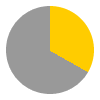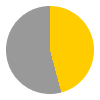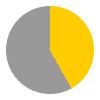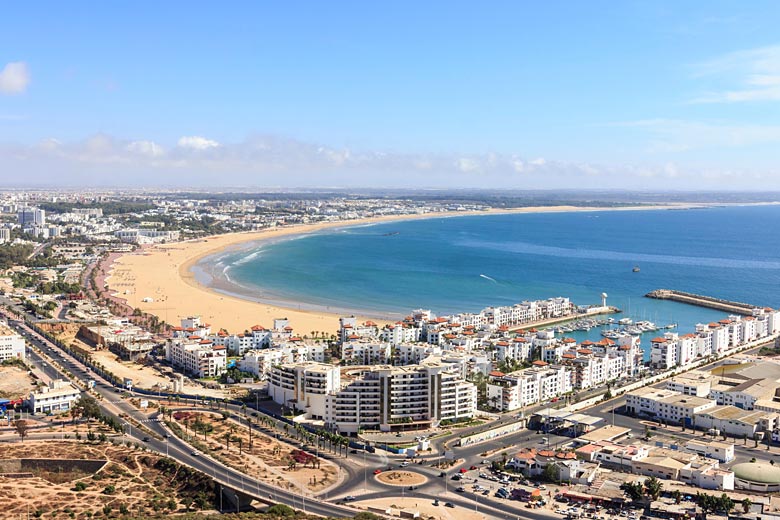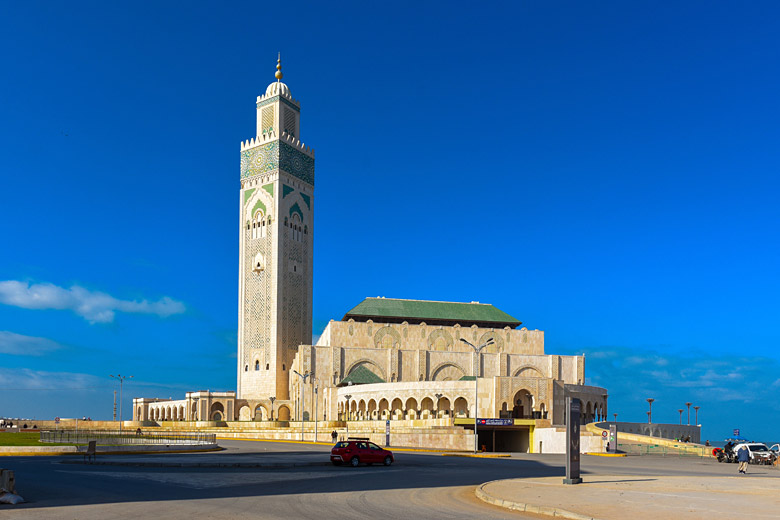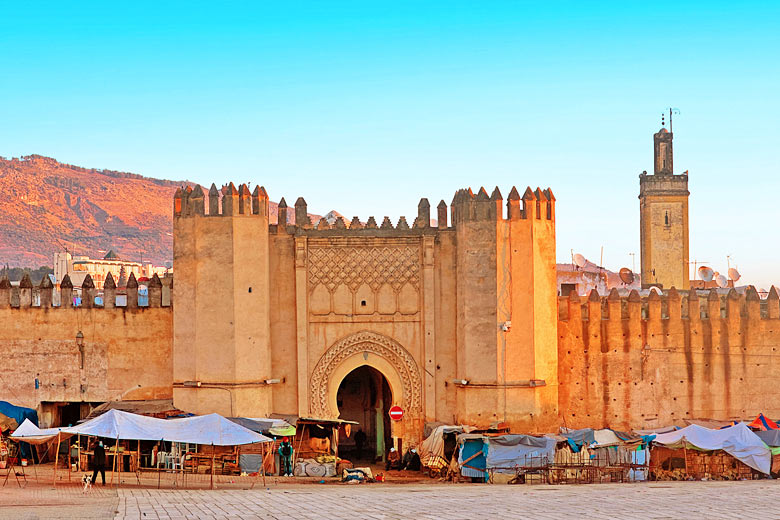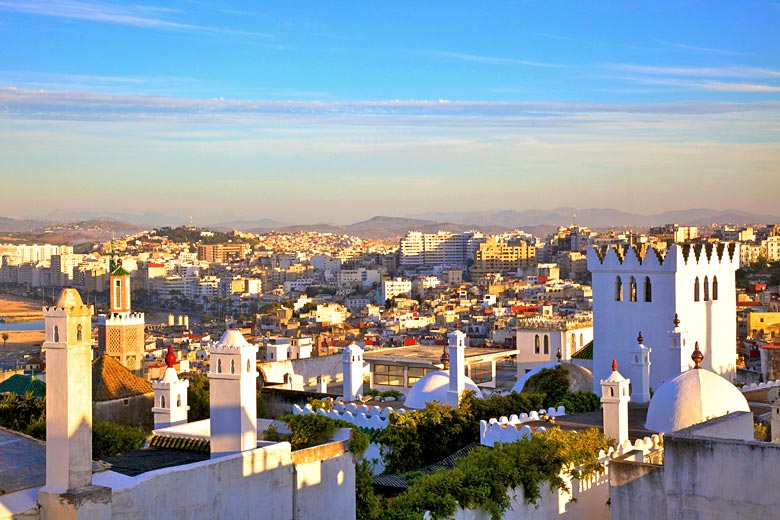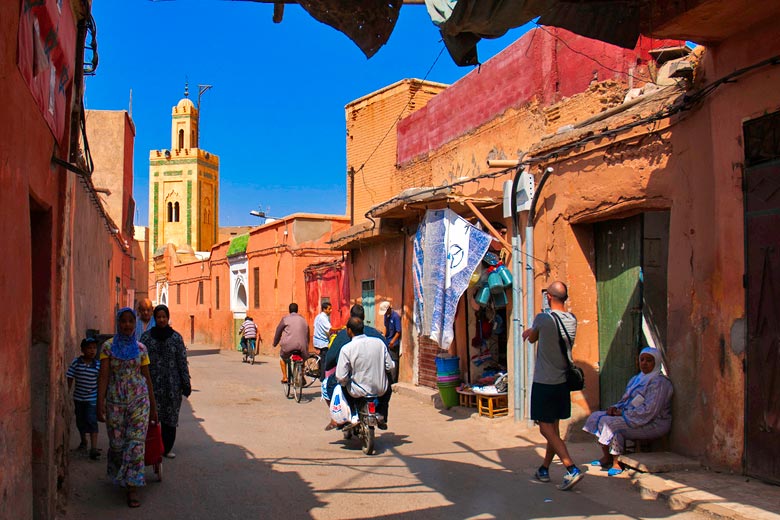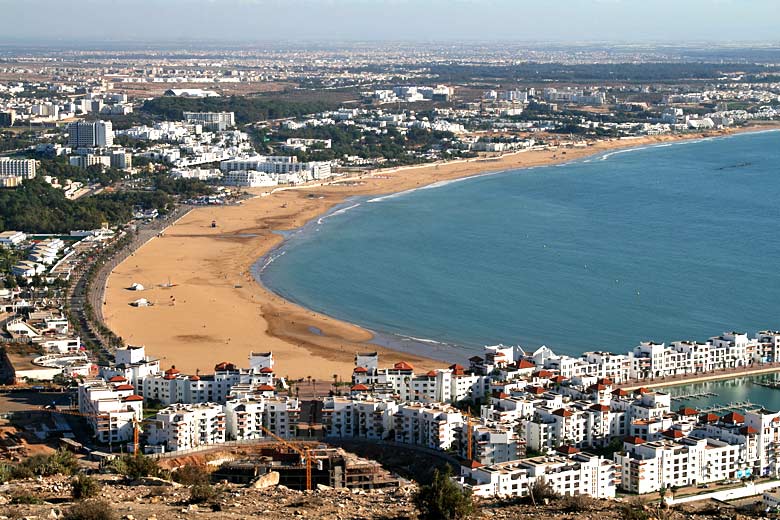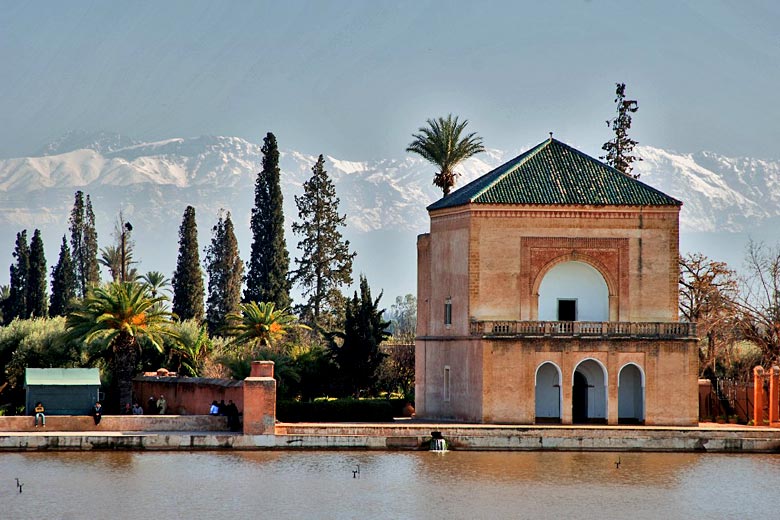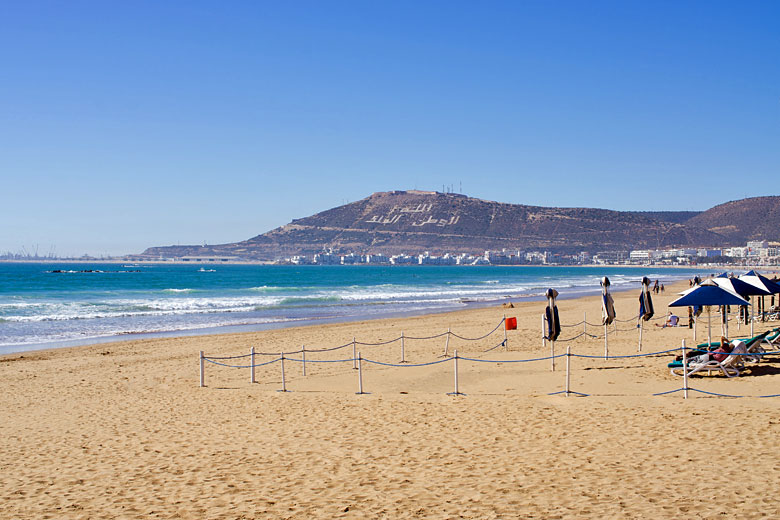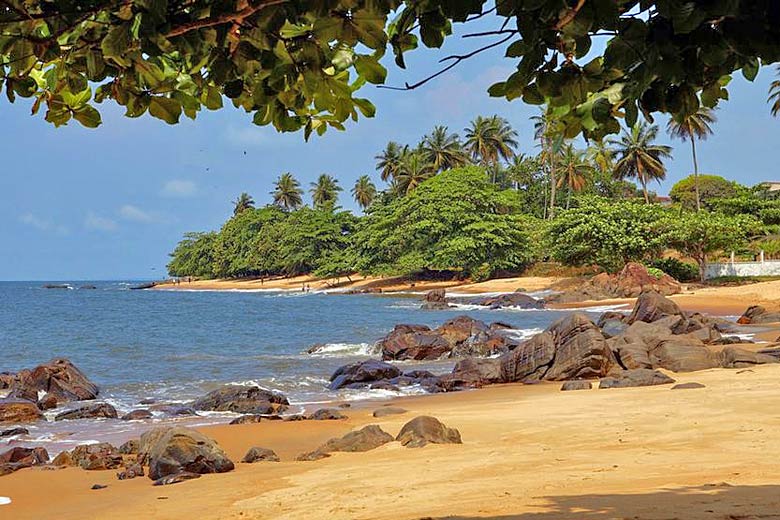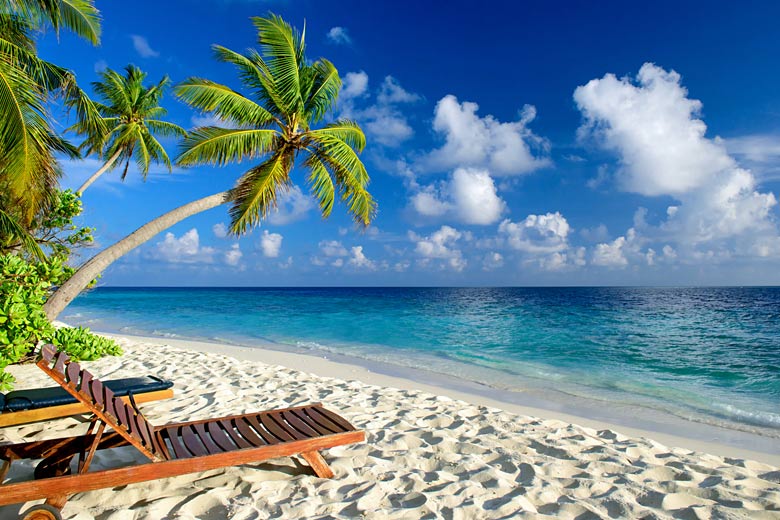- Book online with TUI & save up to 7% on holidays
- FREE child places available for select holidays
- Pay £0 deposits with direct debit & spread the cost
Best time to visit Morocco
Morocco weather is in some respects similar to many Mediterranean destinations with hot dry summers and cooler wetter winters. However temperatures and rainfall are very much dependent on how far you are from the Atlantic and how high above sea level.
- Best time to visit
- Weather by month
- 5-day weather forecast
- Destinations
- Travel advice
- Deals & discounts
Morocco by month
Jan Feb Mar Apr May Jun Jul Aug Sep Oct Nov Dec
Recommended for Morocco
Top Morocco destinations
Below are the temperatures expected today at popular countries, regions and places in Morocco. Select a destination to compare today's forecast with average weather conditions.
All Morocco destinations
When is the best time to visit Morocco?
The best time to visit Morocco (Marrakech) is June, July and August based on the following average weather conditions.
Daily hours of sunshine = 10 hours or more [remove]
Change the criteria to reflect your weather preferences.
Which is the hottest month in Morocco?
The hottest time of year in Marrakech, Morocco is normally July. Expect maximum daytime temperatures to reach 97°F with very high heat and humidity.
Which month has the most rain in Morocco?
In terms of rainfall, November is usually the wettest month in Marrakech, Morocco with 1.5 inches on average. There are normally 6 days in November with some rain.
When is it sunniest in Morocco?
The sunniest time of year in Marrakech, Morocco is normally July with bright sunshine on average for 77% of daylight hours; that's 11 hours of sunshine per day.
Best time to visit
The weather guide for Morocco (Marrakech) shows long term weather averages processed from data supplied by CRU (University of East Anglia) & today's weather forecast provided by meteoblue. Find out more about our data sources.
Metric (°C) | Imperial (°F)
Morocco weather overview
On Morocco's Atlantic coast it is cooler in summer and warmer in winter than inland because the sea helps to moderate air temperatures.
It is worth remembering this if you are visiting Morocco in summer and find it too hot - simply head for the coast where it is guaranteed to be cooler.
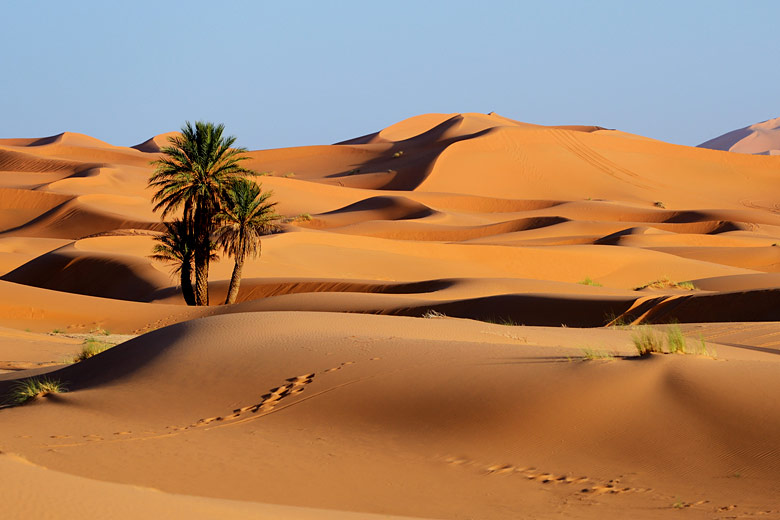
In the north of the country Morocco weather is typically Mediterranean, very similar to the Costa del Sol, but conditions become more arid the further south or west you travel, and warmer in summer the further you are from the coast.
In the Atlas Mountains, the range that separates these two regions, it is also much cooler in winter with snow and ice at higher elevations.
The Atlas Mountains rise to over 4,000 metres in places and dominate the whole country. To the east is the Sahara Desert and to the west the main population centres on the fertile plains of the north-west.
Elevation above sea level has an effect on temperature which usually means the higher you go the cooler it is.
While this is true in winter it is not always the case in summer because the high pressure that sits over the Sahara Desert in summer produces so much heat, it reaches high into the mountains.
At the highest point on the road between Marrakech and Ouarzazate, which is over 2,000 metres above sea level, it can be 2°C warmer at the height of summer than at Casablanca on the coast.
Marrakech, probably one of the best know destinations in Morocco, lies to the west of the Atlas around 500 metres above sea level.
In winter it is generally sunny with daytime temperatures reaching the high teens, possibly topping 20°C on some days, and falling to single figures overnight. If there is rain it usually falls during the winter months.
From April daytime temperatures in Marrakech rise steadily to the low thirties by the middle of June, while July and August are particularly hot.
Heat and humidity is usually very high during this time and temperatures can easily rise above 40°C. All through the summer there is masses of sunshine, but the heat can be quite oppressive.
If you are thinking of heading east of the Atlas summer is not the ideal time because of the heat.
The best time to see the desert is in the spring around March and April when, if there has been some rain, you may catch some beautiful wild flowers, and wonderful clear starry nights as well.
On the coast Casablanca, Essaouira and Agadir are popular destinations for travellers. In winter Essaouira and Agadir are slightly warmer than Marrakech with about the same amount of sunshine - that is at least 7 hours a day.
Casablanca, being that bit further north, is cooler. Along the whole Atlantic coast rain can fall in winter and storms occasionally blow in off the ocean that bring up to a few days of light rain.
In summer the cool Atlantic ensures that all coastal destinations do not overheat; in fact summer temperatures are on a par with those in the Canary Islands in the mid to high twenties Celsius; sea temperatures on the other hand are a degree or two cooler which can make a dip in the sea particularly refreshing.
All areas of Morocco are prone to dust storms that can blow up at any time off the Sahara Desert. They are not that common but occur more frequently between February and April.
They are strongest to the east of the mountains where some only last for a few hours while others can hang around for a day or two.
Morocco is still an exotic destination that can be reached from most European cities in a matter of hours by air, so it is very accessible.
In summer it can be very hot, but whatever time of year you are planning to visit, Morocco weather is generally very sunny and rain is hardly ever a problem.
What to pack for Morocco weather
Be prepared for hot summers and cold winters if you are visiting any mountain areas in the interior.
In winter there is also a chance of sharp showers. Much of the country is very hot in summer but also be aware of the need to cover your skin to protect it from the sun.
What the local Berber people wear has been thoughtfully developed over time. On the coast expect rain at times in the winter.
Morocco travel features
Do you want to learn more about Morocco? Read our latest features covering travel tips and insider destination guides on where to go and what to do in Morocco.
Be inspired
Get your weekly fix of holiday inspiration from some of the world's best travel writers plus save on your next trip with the latest exclusive offers
We promise not to share your details
Related posts
Popular travel offers
Explore holidays in the sun for less
- Beach holidays
- Family holidays
- City breaks
- Summer holidays
- Winter sun holidays
- Holiday offers
- Top travel brands
- Airlines & flights
- Discount hotels
- Airport parking deals
- TUI
- Jet2holidays
- easyJet holidays
- Love Holidays
- January sales
Airport parking
- Manchester Airport
- Stansted Airport
- Bristol Airport
- Luton Airport
- Birmingham Airport
- Edinburgh Airport
- Gatwick Airport
- Glasgow Airport
- Newcastle Airport
Airport lounges
- Manchester Airport
- Birmingham Airport
- Bristol Airport
- Edinburgh Airport
- Glasgow Airport
- Heathrow Airport
- Newcastle Airport
- Stansted Airport
- Gatwick Airport











 TUI deal finder
TUI deal finder







